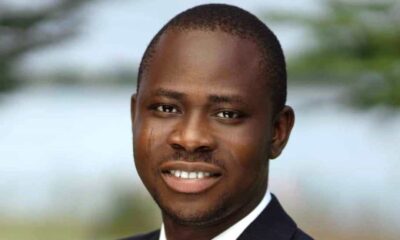Travel
Gov. Sanwo-Olu Meets FAAN Officials Ahead Of International Flight Resumption


Ahead of a possible resumption of international travel of Saturday, the Lagos State Governor, Babajide Sanwo-Olu, on Tuesday, met with the Management team of the Federal Airport Authority of Nigeria (FAAN).
The meeting ironed out actionable steps being put in place at the Murtala Mohammed International Airport (MMIA) by the Federal and State governments to give travellers comfort and better experience when the facility is opened for air traffic.
The FAAN team, led by its Managing Director, Captain Rabiu Yadudu, also made requests to the Governor for interventions germane to the seamless operations of the Lagos airport, which contributes 70 per cent of FAAN’s total revenue.
Sanwo-Olu said officials of the State Government have been working round the clock with the Federal Government to initiate safety protocols in place at the airport and drive compliance. The effort, he said, will be followed by a joint assessment of the airport facility with FAAN and other agencies.
The Governor used the occasion to explain the development activities embarked on by the State Government to ensure travellers have better experience while passing through the airport, disclosing that the State had already started the construction of a world-class bus terminal close to the airport.
The bus terminal, the Governor said, will serve as holding station for international passengers who will not be driving into the airport. He said the bus station would be complemented with rail infrastructure to shuttle air passengers from the metropolis departure terminals.
He said: “An airport is a gateway that defines the nation, because it is the first facility to be seen by international travellers. The Murtala Mohammed International Airport is an important asset, not only to the Federal Government but also to Lagos State. The strategic use of this airport should necessitate that need for us to fully harness the asset and make it a bubbling destination for tourists and businessmen coming into the country.
“As a State Government, we are taking complementary efforts to ensure the airport promotes business and is safe for travellers. We have started the construction of a massive bus terminal along the airport road, which will be complemented with a rail project.
The rail project is part of the Red Line Rail project which will start from Ebute Metta and pass through Oshodi. The right-of-way of this project has been determined and we are hoping the project will start before the end of the year.”
Sanwo-Olu charged FAAN management on remodelling of the airport’s facilities to become a hub of business and tourism. He said some of the facilities installed in the airport at inception were due for modernisation and upgrading.
The Governor particularly made a case for the provision of fast free internet connectivity within lounges at the airport, noting that the era of passengers sitting for long without internet access had passed.
He said the functionality of the airport must be fully explored, urging the management to invest in facilities that would drive more passenger traffic to the airport.
He said: “Travellers across the world are looking for destinations where things they enjoy in their comfort zones are provided. When we provide services and infrastructure that will drive traffic to our airport, not only will it triple the revenue generated for the Government, it will also improve the status of the airport within the continent.”
Yadudu used the opportunity to thank the State Government for the construction of the airport road from Oshodi, noting that the intervention had strengthened the partnership between Lagos Government and FAAN.
The FAAN boss, however, pleaded with the Governor to intervene in ensuring smooth safety compliance and provision of services as the airport prepared to re-open for commercial activities.
Some of the FAAN requests included provision of BRT buses to commute passengers from car park to departure and arrival halls, expansion of strategic airport roads, and halting of encroachment on the airport land around Ajao Estate and Shasha, among other.
The Governor promised further engagements with the Aviation Minister on ways to resolve other issues around the Lagos airport.












